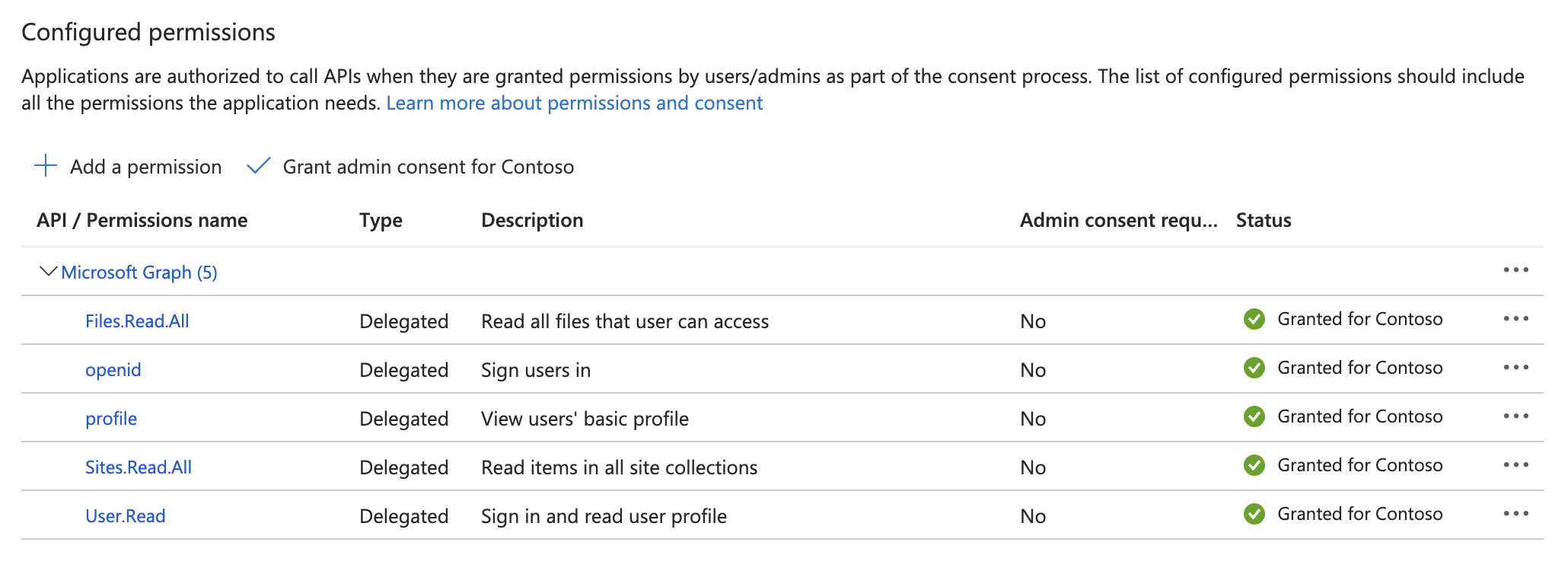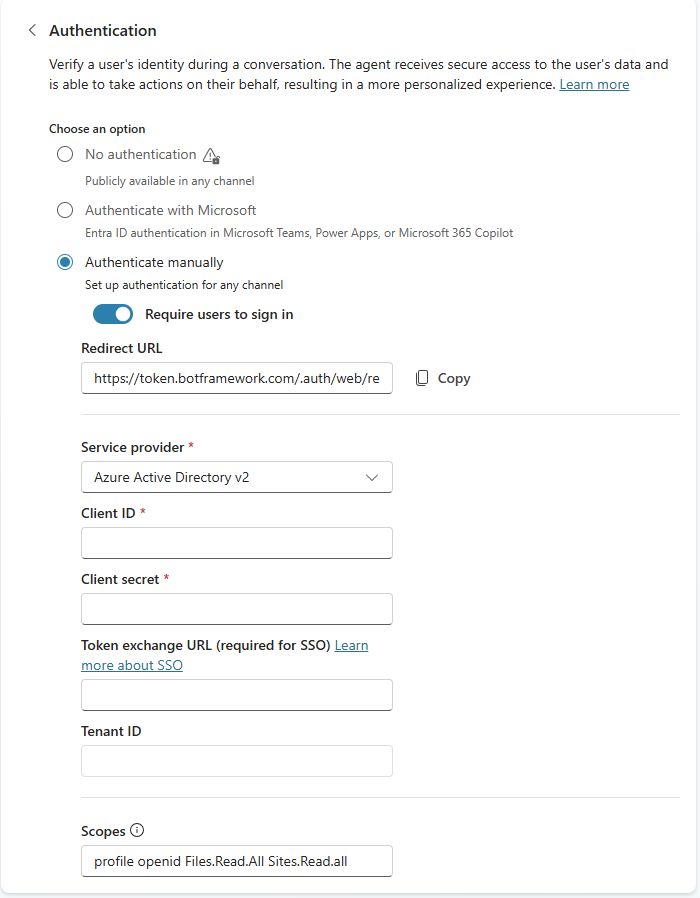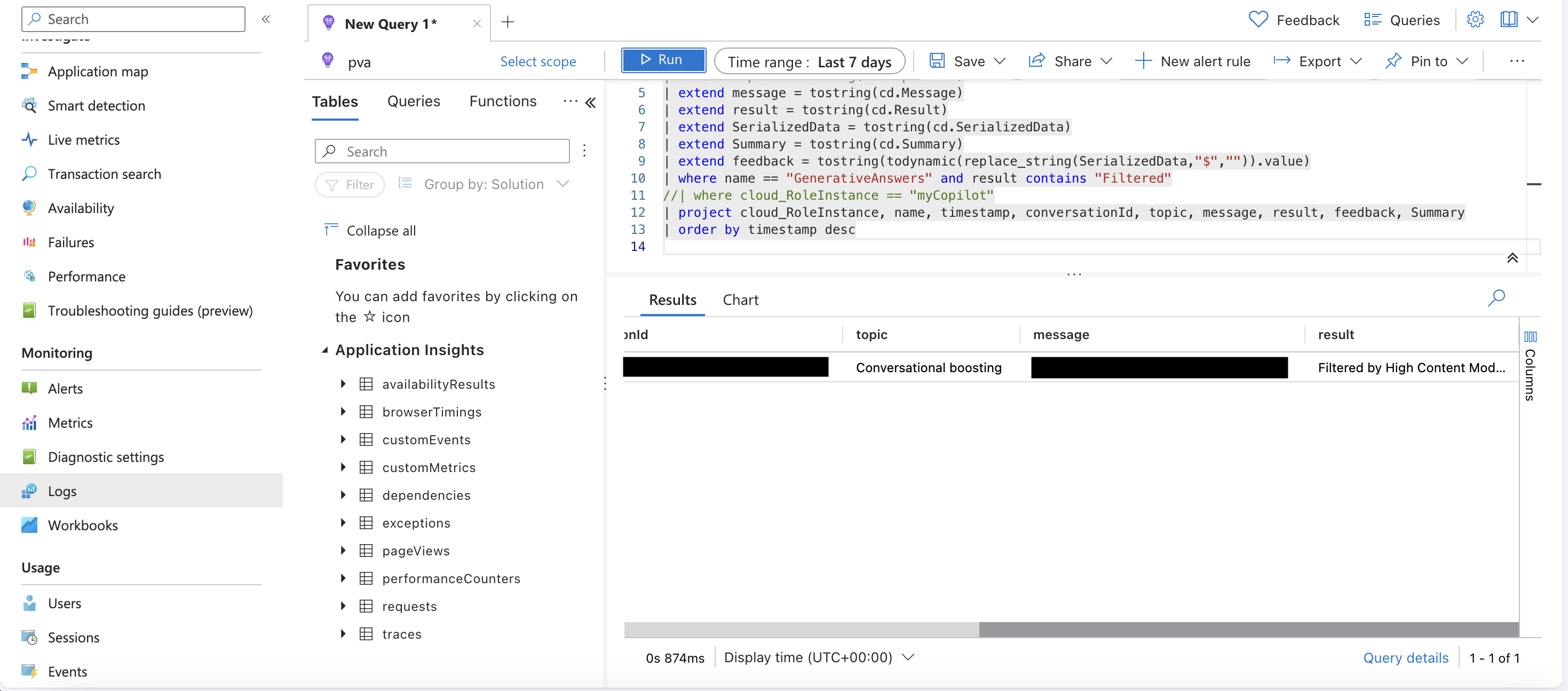Generative answers pointing to SharePoint sources don't return results
Generative answers allow makers to create agents that respond to questions grounded in data sources, like public websites or SharePoint, by pointing the agent at those data sources. However, sometimes the agent doesn't provide a response and instead returns something like 'I'm not sure how to help with that. Can you try rephrasing?' (The actual message depends on the implementation.)
When a SharePoint data source is configured, there could be several different factors preventing the Create generative answers node from returning a response, such as those described in the following sections.
Note
Before continuing, please make sure you have followed the instructions on how to set up generative answers over SharePoint.
For better search results, we recommend a Microsoft 365 Copilot license within the same tenant as your agent.
Search results are missing
When Copilot Studio searches SharePoint, only the top three search results are used to summarize and generate a response. If no search results are returned, the generative answers node doesn't provide a response.
How to fix
Ensure that your Create generative answers node points to a SharePoint location with relevant content.
Only documents in supported formats are used to generate responses.
Note
Only modern SharePoint pages are supported.
It's possible that documents were only recently uploaded to SharePoint, but have yet to be indexed. It's also possible that there are settings that prevent some sites from appearing in search results. For more information, see Search results missing in SharePoint Online.
Missing user permissions
Generative answers over SharePoint rely on delegated permissions when searching. At a minimum, a user must have read permissions on the relevant sites and files, or no search results will be returned.
If the user is missing permissions, no results are returned, nor any errors or exceptions. For a user with no permissions, it appears as if no documents were found.
How to fix
Amend permissions so users can access the relevant sites and files. For more information, see Sharing and permissions in the SharePoint modern experience.
The app registration or agent are misconfigured
When admins configure generative answers over SharePoint, admins are expected to set up authentication with a Microsoft Entra ID, and configure extra scopes. If scopes are missing from the app registration or from the agent authentication settings, or if consent wasn't granted to the required scopes, no results are returned, nor any errors or exceptions. For a user, it appears as if no documents were found.
How to fix
Add the necessary scopes to the App Registration and/or the agent's authentication settings, and grant consent.
The following example is a reference to a well configured app registration:

The following example shows the required authentication settings in Copilot Studio:

File size support
For SharePoint sources, if you don't have a Microsoft 365 Copilot license in the same tenant as your agent, generative answers can only process files up to 7 MB in size. You must also turn off the Enhanced search results feature.
If you have a Microsoft 365 Copilot license in the same tenant as your agent, the maximum file size is 200 MB. You must also turn on the Enhanced search results feature.
Larger files can be stored in SharePoint and are returned by a Microsoft Graph search, but aren't processed by generative answers. As an alternative, you can upload your own files, which can be up to 512 MB in size.
How to fix
If files relevant for your conversational AI experience exceed the size limitation, you might want to explore alternative architectures, such as using Microsoft 365 Semantic Indexing or connect your data to Azure OpenAI for Generative answers.
Content blocked by content moderation
When they generate responses, Copilot Studio agents moderate content that's harmful, malicious, noncompliant, or in breach of copyrights. When content gets moderated, generative answers don't provide a response or an indication that content was moderated. However, moderation events are logged when the agent is configured to send telemetry data to Azure Applications Insights.
After connecting your agent to Azure App Insights, you can use the following Kusto Query Language (KQL) query to find out if content was filtered:
customEvents
| extend cd = todynamic(customDimensions)
| extend conversationId = tostring(cd.conversationId)
| extend topic = tostring(cd.TopicName)
| extend message = tostring(cd.Message)
| extend result = tostring(cd.Result)
| extend SerializedData = tostring(cd.SerializedData)
| extend Summary = tostring(cd.Summary)
| extend feedback = tostring(todynamic(replace_string(SerializedData,"$","")).value)
| where name == "GenerativeAnswers" and result contains "Filtered"
| where cloud_RoleInstance == "myCopilot"
| project cloud_RoleInstance, name, timestamp, conversationId, topic, message, result, feedback, Summary
| order by timestamp desc
In the following example, the KQL query highlights an attempt to use generative answers filtered by content moderation:

How to fix
Try to adjust content moderation, but keep in mind that a lower level of content moderation might result in answers that are less accurate or relevant.
If you think your content shouldn't be moderated, raise a case with customer support.